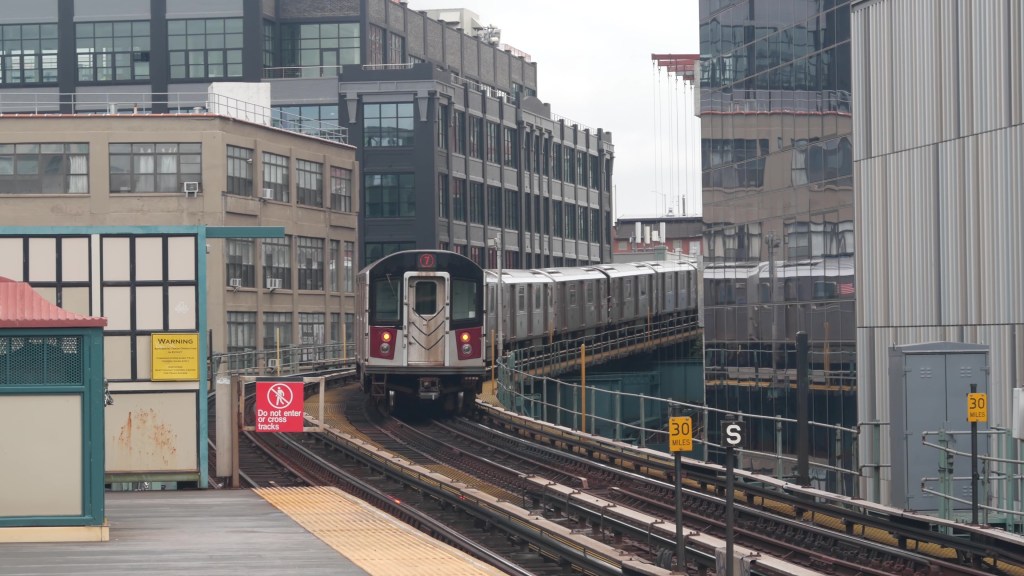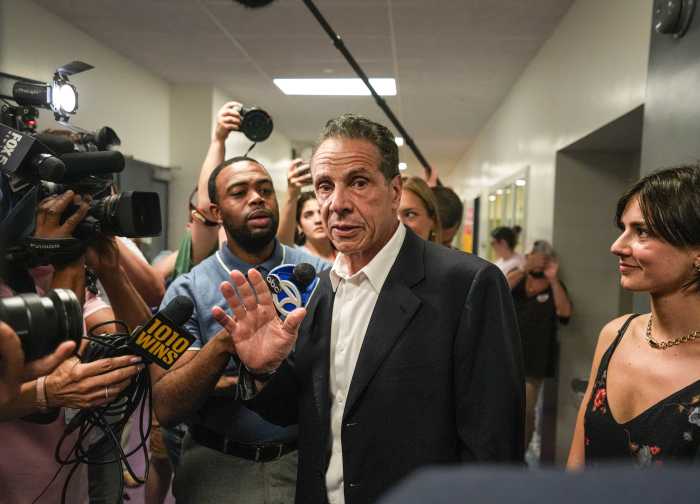Alberto Angel runs his own party store in Jackson Heights. He has two employees and pays taxes. What he doesn’t have is a say in who makes the laws that affect his business.
Originally from Colombia, Angel is not a U.S. citizen, so he can’t vote.
“I want to be more integrated into the system,” said Angel through a translator. “I don’t feel a part of the system… and I’ve been here for 20 years.”
Angel and another one million non-citizen immigrants in New York City could get the right to vote in city elections if a bill introduced by Manhattan City Councilmember Bill Perkins becomes law.
The bill, which is headed to the Governmental Operations Committee for hearings, would give documented non-citizens who have lived in New York City for at least six months the right to vote in municipal elections.
Queens would be most affected by the change, with almost half a million non-citizen adult residents.
The district that would be most affected is Councilmember Hiram Monserrate’s in western Queens, where 44 percent of the residents, around 72,000 people, are non-citizens according to the 2000 census.
“It is an interesting idea,” Monserrate said. “The debate will be fierce, but it is possible that it could pass, and immigrants should support it because it is an opportunity for them to promote themselves.”
Supporters of the bill say giving non-citizens voting rights would improve city governance by making it more responsive to every New Yorker. But opponents say voting should be tied to citizenship, and non-citizens do not know enough about the U.S. to participate in elections.
Currently, non-citizens vote in municipal elections in six cities in Maryland and other cities, including Washington D.C., are considering it.
“It’s not a new idea, and it is not a unique idea to New York,” said Perkins. “It’s as old as the battle-cry: ‘No taxation without representation.’
“It went from only white men voting, to women, to the civil rights movement,” said Perkins. “It’s about democracy, about being more inclusive.”
One potential stumbling block for the bill is an opinion issued by Mayor Michael Bloomberg’s office that says before non-citizens could vote in city elections, the state’s constitution would have to change.
But Matthew Tollin, head of the subcommittee on non-citizen voting for the New York City Bar Association, said in his opinion neither election law nor the state constitution prohibit non-citizen voting. He said case law suggests localities can change election law unless it’s expressly forbidden.
Others disagree, saying non-citizen voting would cheapen citizenship and make the country less secure.
Peter Gadiel, who lost a son on Sept. 11, said he believes voting is a right for citizens. He is president of 9/11 Families for a Secure America, a group that encourages the enforcement of laws keeping undocumented immigrants out of the U.S.
Gadiel was stunned to hear the measure was being debated.
“It’s so beyond reason for [non-citizen voting] to happen anywhere,” he said. “Walking off a plane with an immigrant visa in your hand doesn’t mean you know a damn thing of what this country is about.”
Florence Chen, who immigrated to the U.S. from Singapore, said she understands that some people are afraid to give non-citizens the right to vote, especially after September 11. But Chen, who lives in Forest Hills, thinks non-citizens should be able to vote in city elections.
“Whether you think there should be more or less immigrants, we’re here. You can’t get rid of us by not letting us vote,” she said.
Suzanne Bates is a freelance writer.
































